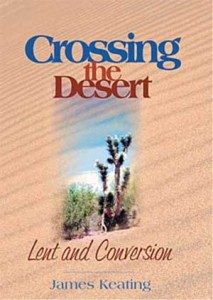Podcast: Play in new window | Download (Duration: 34:54 — 24.0MB) | Embed
Subscribe: Apple Podcasts | Spotify | Amazon Music | Android | Pandora | iHeartRadio | JioSaavn | Podchaser | Gaana | Podcast Index | Email | TuneIn | Deezer | Anghami | RSS | More

First Three Hail Mary’s:
I live now not with my own life but with the life of Christ who lives in me. The life I now live in this body I live in faith: faith in the Son of God who loved me and who sacrificed himself for my sake. (Galatians 2:20)
I know the plans I have in mind for you – it is Yahweh who speaks – plans for peace, not disaster, reserving a future full of hope for you. Then when you call to me, and come to plead with me, I will listen to you. When you seek me you shall find me, when you seek me with all your heart; I will let you find me. (Jeremiah 29:11-14a)
3. Love is always patient and kind; it is never jealous; love is never boastful or conceited; it is never rude or selfish; it does not take offense and is not resentful. Love takes no pleasure in other people’s sins but delights in the truth; it is always ready to excuse, to trust, to hope, and to endure whatever comes. Love does not come to an end (1 Corinthians 13:4-8)
The Sorrowful Mysteries
The Agony in the Garden
1. Then Jesus came with them to a small estate called Gethsemane; and he said to his disciples, ‘Stay here while I go over there to pray’.(Matthew 26:36)
2. He took Peter and the two sons of Zebedee with him. And sadness came over him, and great distress.(Matthew 26:37)
3. Then he said to them, ‘My soul is sorrowful to the point of death. Wait here and keep awake with me.’ And going on a little further he fell on his face and prayed. ‘My Father,’ he said ‘if it is possible, let this cup pass me by. Nevertheless, let it be as you, not I, would have it.'(Matthew 26:38-39)
4. He came back to the disciples and found them sleeping, and he said to Peter, ‘So you had not the strength to keep awake with me one hour? You should be awake, and praying not to be put to the test. The spirit is willing, but the flesh is weak.'(Matthew 26:40-41)
5. Again, a second time, he went away and prayed: ‘My Father,’ he said ‘If this cup cannot pass by without my drinking it, your will be done!’ And he came back again and found them sleeping, their eyes were so heavy.(Matthew 26:42-43)
6. Leaving them there, he went away again and prayed for the third time, repeating the same words.Then he came back to the disciples and said to them, ‘You can sleep on now and take your rest. Now the hour has come when the Son of Man is to be betrayed into the hands of sinners. (Matthew 26:44-45)
7. Get up! Let us go! My betrayer is already close at hand.’ He was still speaking when Judas, one of the Twelve, appeared, and with him a large number of men armed with swords and clubs, sent by the chief priests and elders of the people. (Matthew 26:46-47)
8. Now the traitor had arranged a sign with them. ‘The one I kiss,’ he had said ‘he is the man. Take him in charge.’ So he went straight up to Jesus and said, ‘Greetings, Rabbi’, and kissed him. Jesus said to him, ‘My friend, do what you are here for’. Then they came forward, seized Jesus and took him in charge. (Matthew 26:48-50)
9. At that, one of the followers of Jesus grasped his sword and drew it; he struck out at the high priest’s servant, and cut off his ear. Jesus then said, ‘Put your sword back, for all who draw the sword will die by the sword. (Matthew 26:51-52)
10. Or do you think that I cannot appeal to my Father who would promptly send more than twelve legions of angels to my defense? But then, how would the scriptures be fulfilled that say this is the way it must be?'(Matthew 26:53-54)
The Scourging at the Pillar
1. The high priest then stood up and said to him, ‘Have you no answer to that? What is this evidence these men are bringing against you?’ But Jesus was silent. And the high priest said to him, ‘I put you on oath by the living God to tell us if you are the Christ, the Son of God’.(Matthew 26:62-63)
2. ‘The words are your own’ answered Jesus. ‘Moreover, I tell you that from this time onward you will see the Son of Man seated at the right hand of the Power and coming on the clouds of heaven.'(Matthew 26:64)
3. At this, the high priest tore his clothes and said, ‘He has blasphemed. What need of witnesses have we now? There! You have just heard the blasphemy.(Matthew 26:65)
4. What is your opinion?’ They answered, ‘He deserves to die’. Then they spat in his face and hit him with their fists; others said as they struck him, ‘Play the prophet, Christ! Who hit you then?'(Matthew 26:66-68)
5. Then Pilate saw that he was making no impression, that in fact a riot was imminent. So he took some water, washed his hands in front of the crowd and said, ‘I am innocent of this man’s blood. It is your concern.’ And the people, to a man, shouted back, ‘His blood be on us and on our children!’ (Matthew 27:24-25)
6. Then he released Barabbas for them. He ordered Jesus to be first scourged and then handed over to be crucified.(Matthew 27:26)
7. Like a sapling he grew up in front of us, like a root in arid ground. Without beauty, without majesty (we saw him), no looks to attract our eyes;(Isaiah 53:2)
8. a thing despised and rejected by men, a man of sorrows and familiar with suffering, a man to make people screen their faces; he was despised and we took no account of him.(Isaiah 53:3)
9. And yet ours were the sufferings he bore, ours the sorrows he carried. But we, we thought of him as someone punished, struck by God, and brought low. (Matthew 53:4)
10. Yet he was pierced through for our faults, crushed for our sins. On him lies a punishment that brings us peace, and through his wounds we are healed.(Matthew 53:5)
The Crowning with Thorns
1. the soldiers twisted some thorns into a crown and put it on his head, and dressed him in a purple robe. They kept coming up to him and saying, ‘Hail, king of the Jews!’; and they slapped him in the face. (John 19:2-3)
2. Pilate came outside again and said to them, ‘Look, I am going to bring him out to you to let you see that I find no case’. Jesus then came out wearing the crown of thorns and the purple robe. Pilate said, ‘Here is the man’. (John 19:4-5)
3. When they saw him the chief priests and the guards shouted, ‘Crucify him! Crucify him!’ Pilate said, ‘Take him yourselves and crucify him: I can find no case against him’.(John 19:6)
4. ‘We have a Law,’ the Jews replied ‘and according to that Law he ought to die, because he has claimed to be the Son of God.’ When Pilate heard them say this his fears increased. (John 19:7-8)
5. Re-entering the Praetorium, he said to Jesus, ‘Where do you come from?’ But Jesus made no answer. Pilate then said to him, ‘Are you refusing to speak to me? Surely you know I have power to release you and I have power to crucify you?’ (John 19:9-10)
6. ‘You would have no power over me’ replied Jesus ‘if it had not been given you from above; that is why the one who handed me over to you has the greater guilt.'(John 19:11)
7. From that moment Pilate was anxious to set him free, but the Jews shouted, ‘If you set him free you are no friend of Caesar’s; anyone who makes himself king is defying Caesar’.(John 19:12)
8. Hearing these words, Pilate had Jesus brought out, and seated himself on the chair of judgement at a place called the Pavement, in Hebrew Gabbatha.It was Passover Preparation Day, about the sixth hour. ‘Here is your king’ said Pilate to the Jews.(John 19:13-14)
9. ‘Take him away, take him away!’ they said. ‘Crucify him!’ ‘Do you want me to crucify your king?’ said Pilate. The chief priests answered, ‘We have no king except Caesar’.(John 19:15)
0. So in the end Pilate handed him over to them to be crucified.(John 19:16)
The Carrying of the Cross
1. And when they had finished making fun of him, they took off the purple and dressed him in his own clothes. They led him out to crucify him.They enlisted a passer-by, Simon of Cyrene, father of Alexander and Rufus, who was coming in from the country, to carry his cross. (Mark 15:20-21)
2. Large numbers of people followed him, and of women too, who mourned and lamented for him. But Jesus turned to them and said, ‘Daughters of Jerusalem, do not weep for me; weep rather for yourselves and for your children. (Luke 23:27:28)
3. For the days will surely come when people will say, “Happy are those who are barren, the wombs that have never borne, the breasts that have never suckled!”(Luke 23:29)
4. Then they will begin to say to the mountains, “Fall on us!”; to the hills, “Cover us”. For if men use the green wood like this, what will happen when it is dry?’ (Luke 23:30-31)
5. We had all gone astray like sheep, each taking his own way, and Yahweh burdened him with the sins of all of us. Harshly dealt with, he bore it humbly, he never opened his mouth, like a lamb that is led to the slaughter-house, like a sheep that is dumb before its shearers never opening its mouth. (Isaiah 53:6-7)
6. By force and by law he was taken; would anyone plead his cause? Yes, he was torn away from the land of the living; for our faults struck down in death. (Isaiah 53:8)
7. They gave him a grave with the wicked, a tomb with the rich, though he had done no wrong and there had been no perjury in his mouth. (Isaiah 53:9)
8. Yahweh has been pleased to crush him with suffering. If he offers his life in atonement, he shall see his heirs, he shall have a long life and through him what Yahweh wishes will be done.(Isaiah 53:10)
9. His soul’s anguish over he shall see the light and be content. By his sufferings shall my servant justify many, taking their faults on himself. (Isaiah 53:11)
10. Hence I will grant whole hordes for his tribute, he shall divide the spoil with the mighty, for surrendering himself to death and letting himself be taken for a sinner, while he was bearing the faults of many and praying all the time for sinners. (Isaiah 53:12)
The Crucifixion of Jesus Christ
1. They brought Jesus to the place called Golgotha, which means the place of the skull. They offered him wine mixed with myrrh, but he refused it. (Mark 15:22-23)
2. Then they crucified him, and shared out his clothing, casting lots to decide what each should get. It was the third hour when they crucified him(Mark 15:24-25)
3. The inscription giving the charge against him read: ‘The King of the Jews’.And they crucified two robbers with him, one on his right and one on his left.(Mark 15:26-28)
4. One of the criminals hanging there abused him. ‘Are you not the Christ?’ he said. ‘Save yourself and us as well.’ But the other spoke up and rebuked him. ‘Have you no fear of God at all?’ he said. ‘You got the same sentence as he did, but in our case we deserved it: we are paying for what we did. But this man has done nothing wrong. (Luke 23:39-41)
5. Jesus,’ he said ‘remember me when you come into your kingdom.’ ‘Indeed, I promise you,’ he replied ‘today you will be with me in paradise.'(Luke 23:42-43)
6. Near the cross of Jesus stood his mother and his mother’s sister, Mary the wife of Clopas, and Mary of Magdala. Seeing his mother and the disciple he loved standing near her, Jesus said to his mother, ‘Woman, this is your son. Then to the disciple he said, ‘This is your mother’. And from that moment the disciple made a place for her in his home.(John 19:25-27)
7. After this, Jesus knew that everything had now been completed, and to fulfil the scripture perfectly he said: ‘I am thirsty’. (John 19:28)
8. And about the ninth hour, Jesus cried out in a loud voice, ‘Eli, Eli, lama sabachthani?’ that is, ‘My God, my God, why have you deserted me? (Matthew 27:46)
9. But Jesus, again crying out in a loud voice, yielded up his spirit. At that, the veil of the Temple was torn in two from top to bottom; the earth quaked; the rocks were split; (Matthew 27:50-51)
10. Meanwhile the centurion, together with the others guarding Jesus, had seen the earthquake and all that was taking place, and they were terrified and said, ‘In truth this was a son of God.’ (Matthew 27:54)



 “That Jonah is You”
“That Jonah is You”


